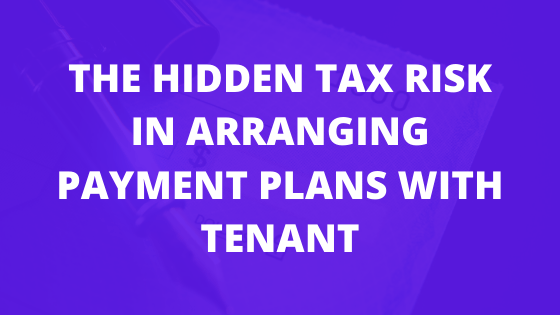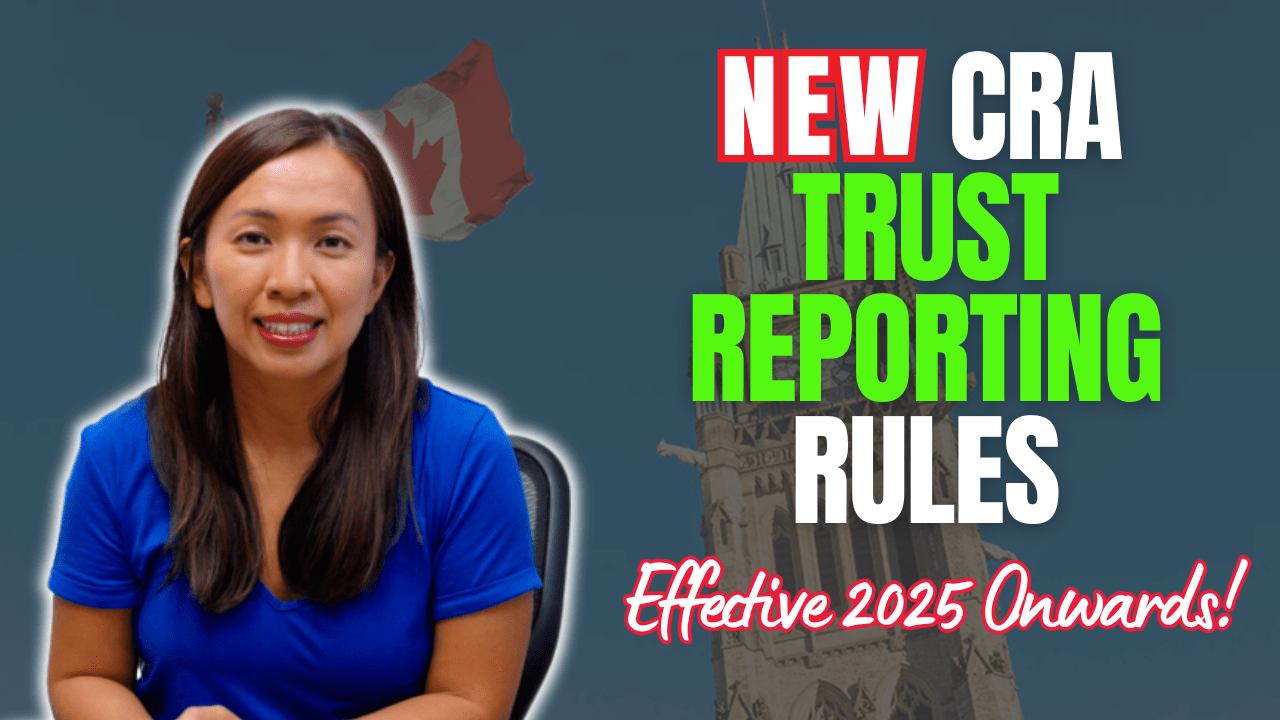I have been on a few webinars lately sharing my insights/interpretation of the latest government programs.

There was one question that I thought that would be useful for all my landlord friends out there.
If you offer a payment plans to your tenants, you may be exposing yourselves to these two hidden tax costs.
Tax is due based on when revenue you are entitled to, not what you have received.
Let me explain.
Income Tax Act requires taxpayers to report their income and expenses on an accrual basis. Not cash basis.
Let’s use insurance expense as an example.
You may receive a bill today to pay insurance expense June 1 for a property you newly purchased that is closing on the same date.
You issue the payment on May 15 for $1,200.
The insurance policy covers the period from Jun 1 of current year to May 30 next year.
Assuming your year-end is calendar year-end (December 31 is your year-end), how much insurance expense can you deduct this year?
Technically speaking, you can only deduct the portion of the expense that belongs to Jun to December of current year.
That is, 7 months in total. You can deduct $700 in this example, even though you pay a total of $1,200 in current year.
The remaining $500 deduction belongs to next year.
Now, let say next year, you renew your insurance policy for $1,800 from Jun 1 Year 2 to May 30 Year 3.
The amount that can be deducted from the cash payment of $1,800 that you make of $1,800 in year 2 is:
= $1,800 / 12 months * 7 months = $1,050
Total insurance that can be deducted in year 2 is
= $1,050 + $500 (amount that was carried forward from year 1) = $1,550.
The undeducted portion of the year 2 premium you paid $1,800 – $1,050 = $750 will be carried forward to Year 3.
How does it relate to you as a nice landlord?
If you apply the same principle from the insurance example before to your rental income, your rental income is calculated based on when you are entitled to charge them.
For the month of March, you’ve earned your income by the end of March 31.
For the month of April, you’ve earned your income by the end of April 30.
For the month of May, you would have earned your income by the end of May.
As a nice landlord, you might decide to make a payment plan with your great tenants to spread out these 3 months of delinquent rent to next 12 months.
Let’s use some numbers to illustrate.
Let say monthly rental income is $2K a month. 3 months of rent = $6K total.
You want to help your tenants out and decide to spread out he $6K over the following 12 months with monthly equal instalment.
This means that every month from June 1 onwards, your tenants agree to pay you $500 more over the next 12 months, until May 30, 2021.
By the end of December 31, 2020, you would have only received $3,500 out of the $6,000 outstanding, still having $2,500 to be collected in 2021.
When you file your 2020 tax return, by the Income Tax Act, you are required to report the full $6,000 of rent as income.
In CRA’s eyes, you’ve earned your income for the full year. Even though you have not collected the full amount, that’s not their concern.
You will be paying tax on the full $6,000 of rent, even though you still have only received $3,500 in total.
You’re essentially prepaying tax, on amount that you have not received yet.
Hopefully, by the time you file your taxes in April 2021, your tenants would have paid in full.
At least, the money is in your pocket for the tax you owe.
If you are commercial landlords, the same principle extends to HST owing.
Using the same example above, as a commercial landlord, you decide to give a break to your tenants. You decide to arrange a payment plans to spread out their March to May rent over the next 12 months.
The only difference is that, instead of $2K a month, you charge $2K + HST a month to your commercial tenants, i.e. $2,260 per month. ($2K rent and $260HST in Ontario.)
Similar to the residential case above, commercial landlord would be required to report the full amount of income at their year-end, even if they have not fully received the payment from their tenants yet.
On top of it, the HST $260 per month on the rent deferral is also due at your HST filing period, even though the HST will not be collected over the next 12 months.
If you’re an annual HST filer, this HST receivable from your tenant would be due 3 months after your year-end.
If you’re a quarterly HST filer, this HST receivable is due in that quarterly filing period, much sooner than when you will expect to receive the full amount of HST.
It would be even worse if you’re a monthly HST filer.
What if the tenants decide to leave before the balance owing is repaid?
It sucks, but it can happen.
Both Income Tax Act and Excise Tax Act (the Act that governs sales tax HST) allow the landlords to write off bad debts when the amounts become uncollectible.
You can write off the amount that is uncollectible as an expense on your tax return. Effectively lowering your taxable income.
You can also write off the Input Tax Credits against the HST collected on your HST filing, effectively lowering your balance payable on HST.
Until next time, happy Canadian Real Estate Investing.
Cherry Chan, CPA, CA
Your Real Estate Accountant





